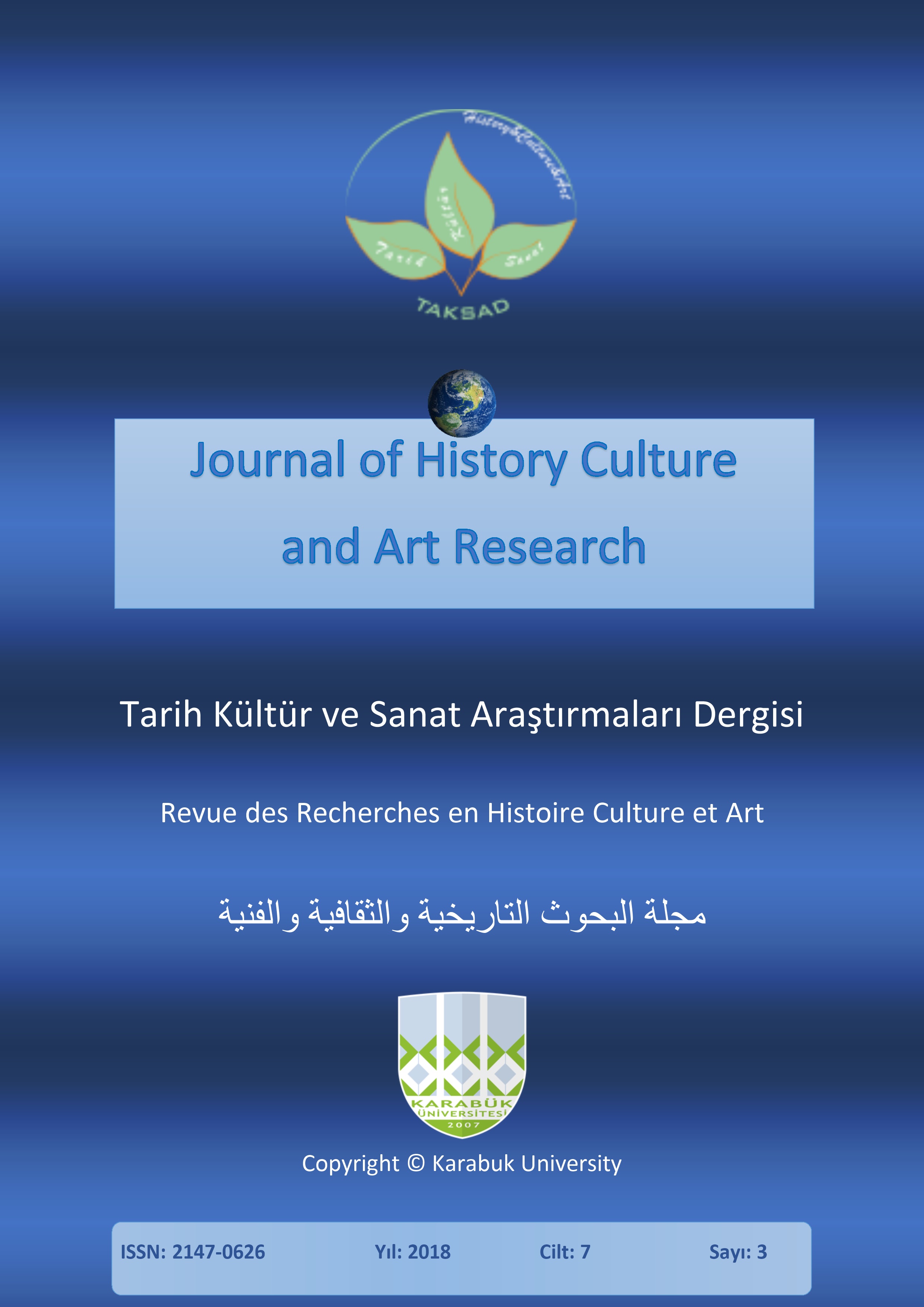Intercultural Communications as a Tool of Formation of the Global Axiological System in the Conditions of Establishment of the Entrepreneurial Type of Thinking of the Russian Society
DOI:
https://doi.org/10.7596/taksad.v7i3.1750Keywords:
Intercultural communications, Globalization, Entrepreneurial thinking, Entrepreneurial activities, Culture, Ethics, Motivation, Values, Acculturation.Abstract
The article is devoted to the influence of intercultural communications on society in the conditions of establishment of the entrepreneurial type of thinking in Russia. The authors note standardization of entrepreneurial culture and increase of priority of global market’s values with bearers of the entrepreneurial type of thinking, who represent the most active and independent part of the Russian society – which stimulates socio-cultural contradictions in the modern society. The conclusion is made on intercultural communications in the conditions of establishment of the entrepreneurial type of thinking in Russia as a tool of formation of the global axiological system.
References
Ac¬cul¬tura¬tion: an ex¬plora¬tory for¬mu¬la¬tion (1954). Ameri¬can An¬thro¬polo¬gist. New se¬ries, 56(6).
Anisimova, Е. Е. (2003). Linguistics of text and intercultural communication: based on materials of creolized texts. Мoscow: Academy.
Gruzhevitskaya, Т. G.; Popkov, V. D. & Sadokhin, А. P. (2003). Foundations of intercultural communications: study guide. Edited by A.P. Sadokhin. Мoscow: UNITI-DANA.
Guzikova, М. О. & Fofanov P. Y. (2015). Foundations of the theory of intercultural communications. Ekaterinburg: Ural University Publ.
Hall, E. Т. (1990). Understanding Cultural Differences: Germans, French and Americans. Intercultural Press.
Hayek, F. (1992). The Fatal Conceit: The Errors of Socialism. Мoscow.
Hofstede, G. (1984). Culture's Consequences: Comparing Values, Behaviors, Institutions and Organizations Across Nations. SAGE Publications.
Korneyko, О. V. (2017). Value directions of modern entrepreneurship in Russia. Economic and social changes: facts, tendencies, and forecast, 10(5), 169-183.
Poznyakov, V. P. (2007). Entrepreneurship as a value and the value of Russian entrepreneurs. In V.S. Stepin (ed.), Russia in the globalizing world: ideological and socio-cultural aspects, (pp. 513-528). Section of philosophy, social science, psychology and law of the Department of social science of the RAS. Мoscow: Nauka.
Pszevorsky, А. (1999). Democracy and market: Political and economic reforms in Eastern Europe and Latin America. Мoscow.
Rodionova, V. I.; Shvachkina, L. A.; Vodenko, K. V. & Ponomaryov, P. A. (2017.) Role of State Regulation in Development of Socio-Labor Relations in the Context of the Russian National Model of Socio-Economic Activity. In E. Popkova (ed.). Overcoming Uncertainty of Institutional Environment as a Tool of Global Crisis Management, (pp. 417-422). (Ser. Contributions to Economics). Springer International Publishing AG.
Sadokhin, А. P. (2005). Introduction to the theory of intercultural communications. Мoscow: Higher school.
Schumpeter, J. (1995) Capitalism, Socialism and Democracy. Moscow: Economy.
Vodenko, K. V.; Rodionova, V. I. & Shvachkina, L. A. (2017). Perspectives of Development of the Russian National Socio-Economic and Political Model. In E.G. Popkova (ed.), Overcoming Uncertainty of Institutional Environment as a Tool of Global Crisis Management, (pp. 423-428). (Ser. Contributions to Economics). Springer International Publishing AG.
Vodenko, K. V.; Rodionova, V. I.; Shvachkina, L. A. & Shubina, M. M. (2018). Russian national model for the regulation of social and economic activities: research methodology and social reality. Quality-Access to Success, 19(S2), 141-145.
Downloads
Published
How to Cite
Issue
Section
License
All papers licensed under Creative Commons 4.0 CC-BY.- Share — copy and redistribute the material in any medium or format
- Adapt — remix, transform, and build upon the material for any purpose, even commercially.
Under the following terms:
Attribution — You must give appropriate credit, provide a link to the license, and indicate if changes were made. You may do so in any reasonable manner, but not in any way that suggests the licensor endorses you or your use.
- No additional restrictions — You may not apply legal terms or technological measures that legally restrict others from doing anything the license permits.







